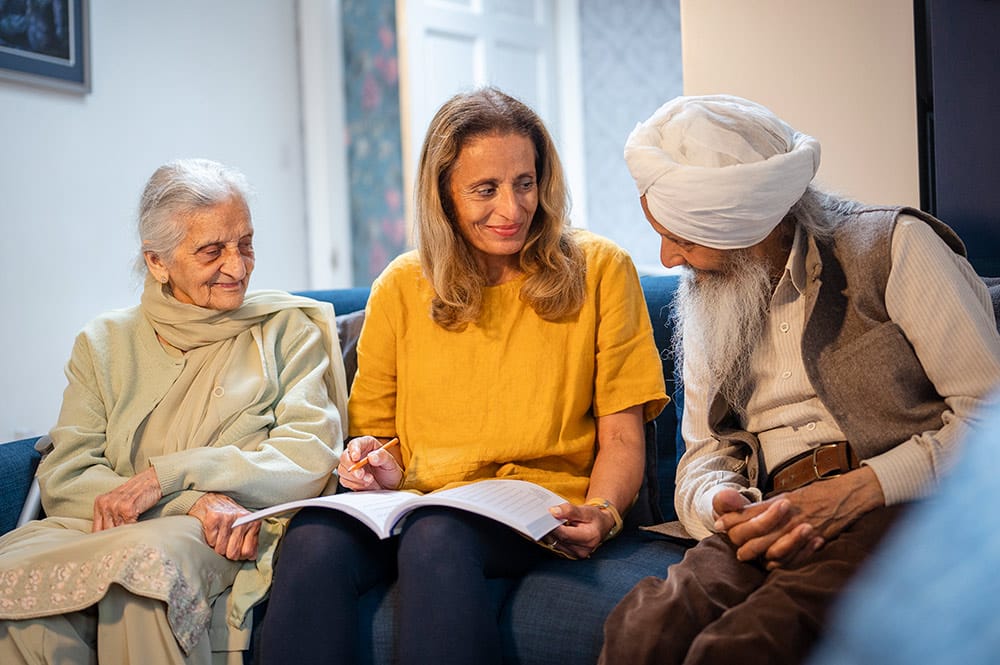
Becoming a carer affects all of us in different ways.
Caring is a diverse, challenging, and rewarding experience. Whatever the circumstances of your caring role, it’s likely that you sometimes experience stressful moments. These resources can be used to help you minimise stress in your day-to-day life.
Carer Training events
We run a free events programme for unpaid carers in Edinburgh and Midlothian called Carer Training. This includes events that are beneficial for mental wellbeing, including:
- Walking groups
- Arts and crafts
- Drop-in sessions to chat about how caring affects your mental health
- Wellbeing activities like meditation and mindfulness
- Information and advice sessions on issues affecting carers
These events are a great opportunity to meet other carers and talk about how your caring role impacts you. One carer said:
“It was so good to talk to people going through the same as me, and to be able to talk about thinks knowing people understood exactly what I was dealing with at home. It was a relief to be able to have such open discussions. I also learnt things from discussions with the other attendees on these courses. I hope that I was also able to pass on helpful information and provide support to those attending the courses I was on.”
Mindful eating
When was the last time you truly enjoyed a meal? Often, we eat while distracted by phones or work and don’t actually taste our food. Try this mindful eating exercise at home to see if it makes a difference!
Choose a piece of fruit and use all five senses to fully observe it as if it were the first time you’d seen it.
Instructions
- Touch: Weigh the fruit in your hands, feeling its texture, temperature, and weight. Spend a few moments doing this.
- Smell: Breathe in the fruit’s scent. Notice any associations your mind makes, then return to focusing on the smell.
- Sight: Observe the fruit’s colour, shape, and texture. Note details without judging them.
- Hearing: Listen to the sound it makes when you squeeze or tap it.
- Taste: Place a piece of the fruit on your lips, then in your mouth, noticing sensations before biting. Slow down to pay attention to the flavours and sensations.
Reflection
- What did you notice?
- Was anything surprising?
- Where did your mind go?
- How satisfying was it to eat this way?
- What do you miss when you eat on autopilot?
- How could this help you?










